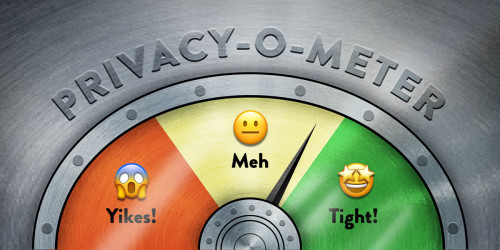EFF takes on fights for the long run, and some of our longest running legal fights are focused on bringing the National Security Agency within the rule of law, and batting back the arguments that the state secrets privilege should insulate the government from accountability for spying. EFF started these cases in 2006 with Hepting v. AT&T. That’s 7 years before Mr. Snowden provided us (and the world) with the irrefutable proof of the NSA’s activities impacting American telecommunications customers like our stalwart clients. Along with our current case, Jewel v. NSA, by the time 2020 rolled around we had been at this for 14 years. If the NSA thought they could wait us out, they were sorely mistaken.
The Jewel v. NSA case arises from general seizures and searches conducted through three NSA surveillance programs: the NSA’s current Upstream tapping of the Internet backbone, its past actions collecting Internet metadata and its discontinued mass telephone records collection, purportedly authorized by section 215 of the Patriot Act. Two of the three programs have now been stopped or changed significantly, one by Congress and another by the government itself after Senator Wyden and others raised concerns. Stopping the third is key, as is ensuring that none of them can be restarted.
In 2020 we were hopeful to have a decision from the Ninth Circuit rejecting the government’s argument that its overblown secrecy claims should nullify our cases. Obviously the whole world knows about these programs -- they’ve been discussed in Congress in public and by the European Courts. EFF Pioneer Award winner Laura Pointras even won an Oscar for her documentary about them. Even still, the case continues. In early November, our amazing volunteer attorney Richard Wiebe got to make the argument before a three-judge panel-- and we still await a decision.
The slow pace makes it clear that we need additional and real reform of the state secrets privilege as well as an overhaul of the NSA’s activities.
In 2020, there was some good judicial news involving NSA secrecy. In Fazaga v. FBI the Court has twice confirmed that the state secrets privilege cannot block a case arising out of electronic surveillance. This builds on the 2019 Ninth Circuit ruling that the government cannot claim national security secrecy over facts that are not secret. With these two rulings, the stage is set for the court to reject the government’s outrageous secrecy position in our electronic surveillance case too.
Also in 2020 the Ninth Circuit joined with the Second Circuit by declaring that the call detail records (CDR) program, which swept up basic information about phone calls of people in and outside of the United States likely “violated the Fourth Amendment when it collected the telephony metadata of millions of Americans.” The Court, in a case called Maolin, also found that the collection likely violated the FISA law. In doing so, it noted that the NSA had effectively lied to Congress and the American people when it claimed that the CDR program had been an important piece in stopping the underlying crime, a violation of U.S. sanctions by Somali immigrant who sent money back home. This confirms what we’ve found behind so many of the government's claims about these secret programs -- nothing. No terrorists stopped, no serious crimes solved, no increased security for Americans in exchange for the loss of our privacy and the massive costs we’ve incurred.
We did suffer a huge loss in our battles against NSA spying this year. Our longtime colleague Jim Tyre, passed away in March. Jim had worked with us on these cases from the beginning and we missed him terribly as we prepared for the Ninth Circuit argument. But we know he would want us to push on and when we do win, it will be another piece of his already brilliant legacy.
These fights are frustrating, but they are worth fighting and the steadfast support of our members is what makes EFF strong for the long run.
This article is part of our Year in Review series. Read other articles about the fight for digital rights in 2020.













